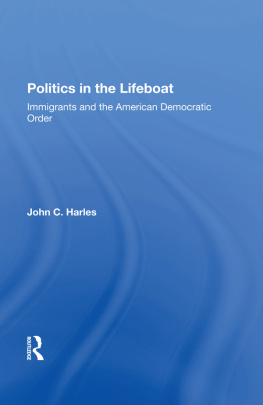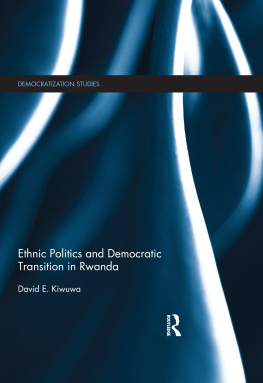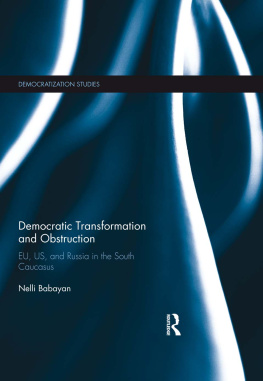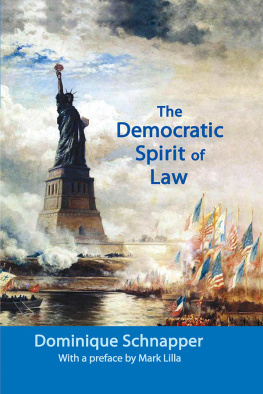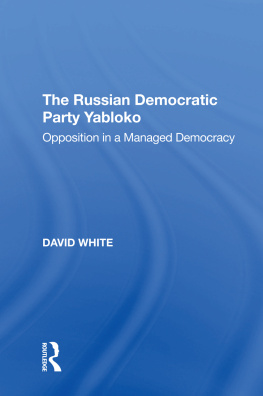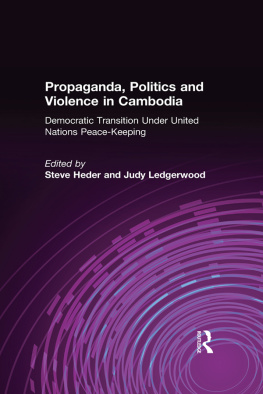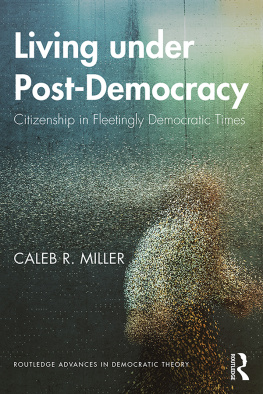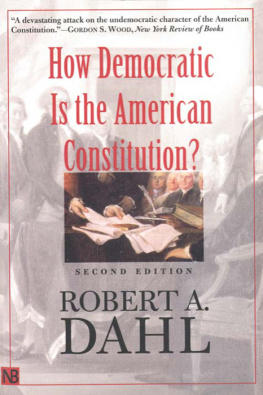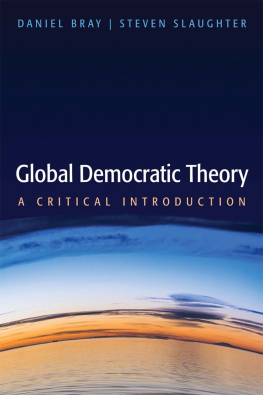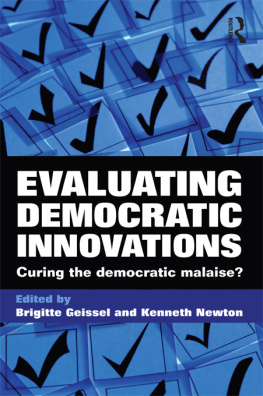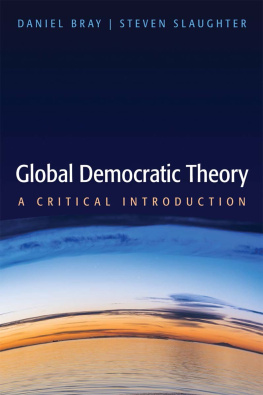First published 1993 by Westview Press
Published 2019 by Routledge
52 Vanderbilt Avenue, New York, NY 10017
2 Park Square, Milton Park, Abingdon, Oxon OX14 4RN
Routledge is an imprint of the Taylor & Francis Group, an informa business
Copyright 1995 Taylor & Francis
All rights reserved. No part of this book may be reprinted or reproduced or utilised in any form or by any electronic, mechanical, or other means, now known or hereafter invented, including photocopying and recording, or in any information storage or retrieval system, without permission in writing from the publishers.
Notice:
Product or corporate names may be trademarks or registered trademarks, and are used only for identification and explanation without intent to infringe.
Library of Congress Cataloging-in-Publication Data
Harles, John C.
Politics in the lifeboat : immigrants and the American democratic
order / John C. Harles.
p. cm.
Includes bibliographical references and index.
1. ImmigrantsUnited StatesPolitical activity. 2 Political
participationUnited States. 3. United StatesPolitics and
government. I. Title
JV6477.H37 1993
323.32930973dc20
92-23617
CIP
ISBN 13: 978-0-367-28369-8 (hbk)
It is a drama that goes on, without a pause, day-by-day and year by year, this visible act of ingurgitation on the part of our body politic and social, and constituting really an appeal to amazement beyond that of any sword-swallowing or fire-swallowing of the circus.
Henry James, The American Scene
In a bibliographic essay appended to his book, The Nature of American Politics , Professor H.G. Nicholas observes, Surprisingly, no comprehensive assessment of immigrations impact on American politics exists. The present study, although by no means claiming to be comprehensive, aspires to make at least a small contribution to that end.
Clearly, there is no shortage of scholarship exploring the relationship between immigration and American politics. Numerous students of the subject have traced the effect of immigrant-stock voters on partisan alignment and the politics of the urban machine. Still others have examined the political dimensions of nativismthose episodes in American history during which anti-immigrant sentiment has been at its height. Further research has considered whether immigrants have advanced or impeded the development of American working-class politics, socialism in particular. So too has immigration been surveyed from the prospect of assimilation, a process, in light of the extraordinary cultural diversity of American society as enhanced and replenished by successive flows of immigration, that is widely regarded as the crucial unifying, and arguably moderating, force of the American polity. Certainly, all such themes would need to be addressed in any truly thorough political assessment of immigration; if the current volume does not do so systematically, it is not for reason of unimportance but concision.
What follows is meant to complement, not supplant, these well-established historical and sociological approaches to immigration and American politics. Thus the essays claim to distinctiveness is not so much the ground it covers but its effort to view what may be familiar about immigrants and immigration in a new waythrough the lens of empirical democratic theory. That this perspective is rarely confronted explicitly in standard accounts of the politics of immigration is the major reason recommending it here. But more boldly, in its macro-level or top-down consideration of the topic, democratic theory also promises an integrative framework for analysis, potentially one making for a more inclusive appraisal of immigrations political consequences.
supplements that hypothesis with a qualitative study of Laotian immigrants and concludes that if the Laotian experience is in any sense representative, from the viewpoint of political stability immigrants have not been simply a mixed blessing for the United States but a positive good. The essay is bracketed by brief introductory and concluding chapters, the former foreshadowing the central lines of argument and clarifying several of the concepts employed, the latter speculating as to the works theoretical and practical implications.
One further prefatory note seems warranted. Given that immigration historically has been a topic of no small partisan debate, it would be natural if the authors political convictions were the subject of speculation. In particular, a reliance on the consensus paradigm of American politics, as well as the assertion that in the view of many immigrants the United States appears to be a lifeboat promising relief from the anxieties of the homeland, may indicate to some readers that a relatively uncritical view of American political history is being offered. At the risk of revealing more than is necessary, that is neither this studys intention nor its authors inclination. There is no desire to underplay the very real hardships of American life for the foreign-born or to suggest that all has been well in the immigrant ghetto. If anything, the fact that immigrant life has frequently been so difficult makes it all the more remarkable that immigrants typically are such committed and supportive citizens. The only political perspective the volume consciously intends to express may be found in its concluding paragraph: Not only have immigrants built America and defined the texture of American life, but they have been instrumental in the preservation of the democratic order. Should any loyalties be communicated in that, they are to the immigrants themselves.
John C Harles
This books early stages of development were advantaged by the nurture of Jim Sharpe of Nuffield College, Oxford. Jim never failed to respond promptly and extensively to innumerable drafts of the manuscript and was consistently able to strike the judicious balance between criticism (invariably constructive) and encouragement. One could not have wished for a better mentor; I continue to benefit from his advice and friendship. Byron Shafer, also of Nuffield College, offered insights and efforts that have been a major catalyst in the transformation of the draft manuscript into a book, and I am deeply appreciative of his substantive and moral support I might mention, as well, the help extended by Seymour Martin Lipset of Stanford and George Mason Universities; his confidence in the manuscript has been gratifying.
My work with Laotian immigrants was expedited by the able assistance of Helen Sawyer and Sisouphanh Ratthahao. Through their linguistic and cultural facility, they provided me with a conduit to the Laotian community. To the degree that my fieldwork has been at all successful, they are in large part responsible
At Messiah College I have had the great privilege of working with three very bright and amiable research assistants: Laurie Bemotsky, Dennis Hoover, and Naomi Johnson. They participated in the preparation of this book in myriad ways: typing the manuscript, compiling bibliographies, tracking down citations, and serving as a general sounding board for my musings about immigration; I hope they did not find it all too tedious. Many thanks, too, to Pamela Snyder, who provided invaluable technical assistance in the final stages of the manuscripts production. A sizable debt of gratitude is also due to my good friend and colleague, Bill Trollinger. Drawing on his field of specialization in American social history, Bill not only saved me from several factual errors but also introduced me to a literature on immigration and ethnicity that I might otherwise have missed. He was generous with his time as well, reading a version of the manuscript in its entirety and offering congenial and honest critical comment

